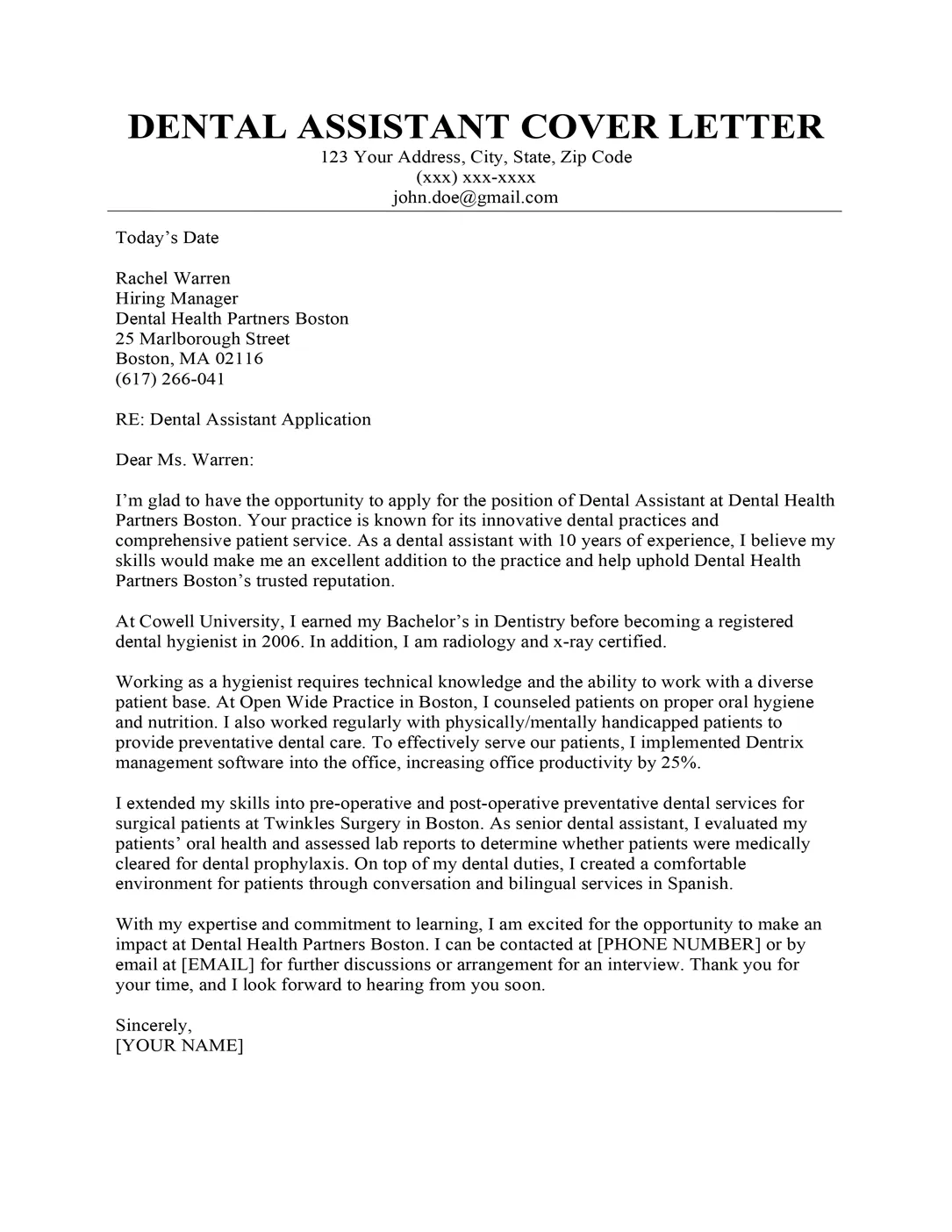Highlighting Your Skills in Cover Letter
A well-crafted cover letter is your chance to shine and make a strong first impression on potential employers. For dental assistants, a compelling cover letter is particularly crucial, as it allows you to showcase your specific skills and qualifications beyond what’s listed on your resume. This document serves as your personal introduction, highlighting your passion for dental care and your suitability for the role. It should be a personalized narrative that complements your resume, providing context and depth to your application. Remember that the purpose of your cover letter is to convince the hiring manager to read your resume, which is the next step to getting an interview.
Dental Assisting Skills to Showcase
The dental field requires a diverse skill set, so your cover letter should reflect this. Identify the key skills most relevant to the job description and emphasize them in your letter. You should highlight your clinical, administrative, and communication skills to present a well-rounded profile. Do some research about the dental practice you are applying to, and tailor your cover letter to their needs. This shows that you are attentive to details and have a genuine interest in the role. By focusing on the skills, you can convince a hiring manager that you are the right fit for their team.
Clinical Skills
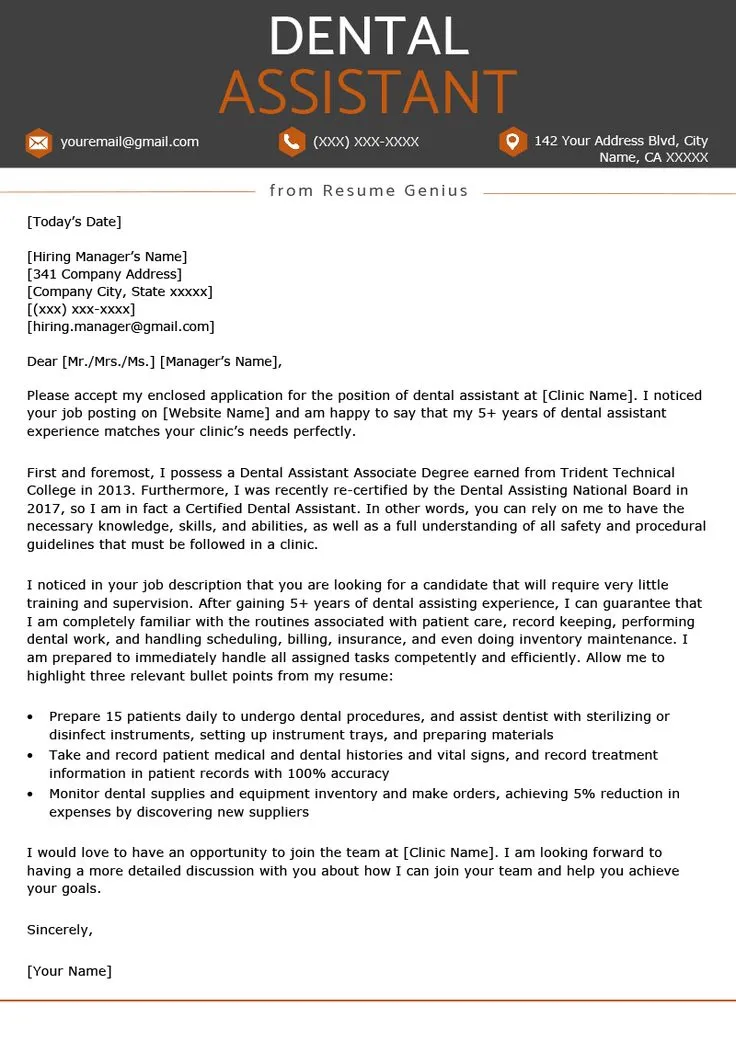
Clinical skills are at the core of a dental assistant’s responsibilities. Mention your proficiency in assisting with various dental procedures, such as fillings, extractions, and root canals. Highlight experience with taking and processing X-rays, sterilization and disinfection techniques, and patient care. Mention any specialized training or certifications, such as coronal polishing or sealant application. If you have experience with electronic health records, specify the software you are familiar with.
Administrative Skills
Beyond clinical duties, administrative skills are also valuable. Showcase your ability to manage patient appointments, handle insurance claims, and maintain patient records. Mention your experience with billing and coding, inventory management, and office organization. If you have experience with practice management software, list the specific systems you are familiar with. This shows that you have a well-rounded skill set to handle both clinical and administrative tasks, making you a more versatile candidate.
Communication Skills
Effective communication is crucial for providing quality patient care. Emphasize your ability to communicate clearly and empathetically with patients, explaining procedures, and addressing their concerns. Highlight your teamwork abilities, including working effectively with dentists, hygienists, and other staff members. Mention any experience in patient education, phone etiquette, and conflict resolution. These communication skills are crucial for building rapport with patients and creating a positive experience in the dental office.
Tailoring Your Cover Letter for Each Application
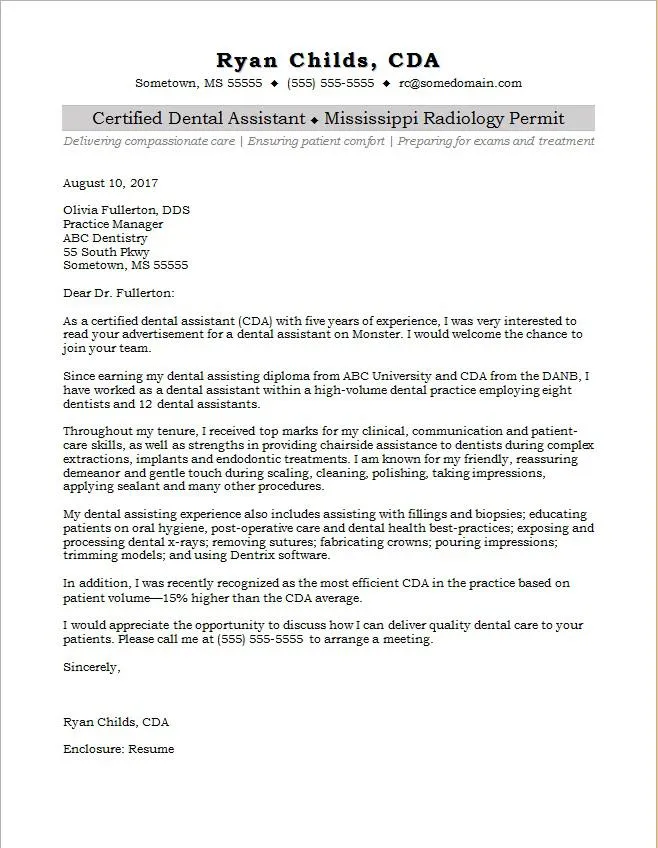
Generic cover letters are easily recognizable and often overlooked. Tailoring your cover letter to each job application shows that you are serious about the position and have done your research. This process involves understanding the specific needs and requirements of the dental practice. You should personalize your letter to reflect the clinic’s values and your understanding of their services. Review the job description carefully, noting the skills and experience that are most important to the employer. Then, highlight the relevant aspects of your background and experience in the most suitable manner.
Researching the Dental Practice
Before writing, thoroughly research the dental practice. Visit their website, read online reviews, and check social media profiles to gain insights into their culture, services, and patient care philosophy. Note the specific requirements mentioned in the job posting, paying attention to the skills and experience that are most valued by the employer. The more you understand about the dental practice, the better you can tailor your cover letter to align with their needs and demonstrate a genuine interest in the role.
Customizing Your Letter
Once you have researched the practice, customize your cover letter to match the specific needs of the dental office. Use the job description to identify the key skills and experiences the employer is seeking, and then adjust your letter to highlight your relevant achievements and qualifications. Incorporate keywords from the job posting to demonstrate that you meet their requirements. Show how your skills align with the practice’s needs. Mention the practice’s values or mission statement to demonstrate that you understand their goals.
Formatting a Professional Cover Letter
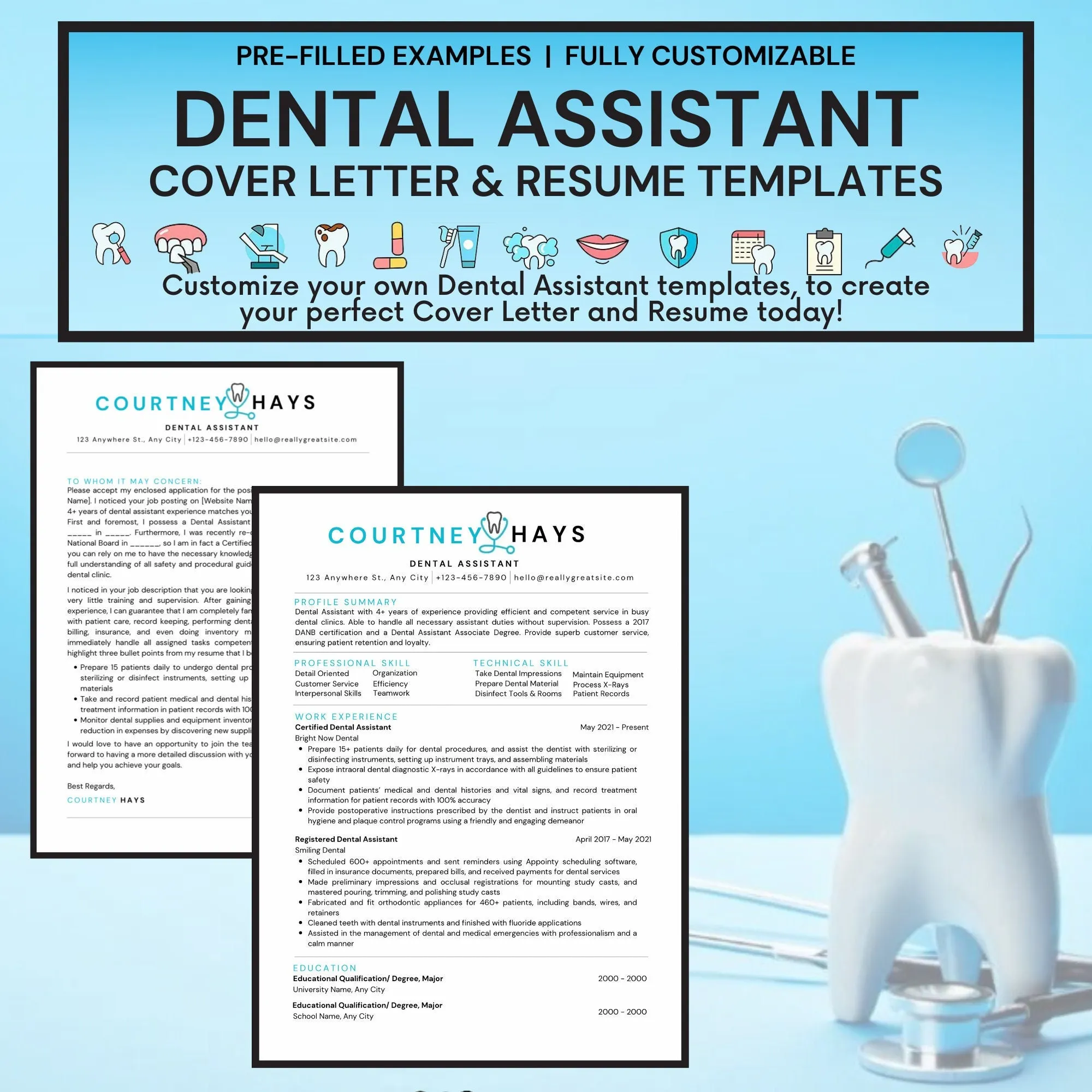
The format of your cover letter is essential for making a positive first impression. A well-formatted cover letter is easy to read and demonstrates professionalism. It is important to follow standard business letter format guidelines, which include proper spacing, font choice, and clear sections. Ensure that your letter is free of grammatical errors and typos, as these mistakes can undermine your credibility. Take the time to proofread your letter thoroughly, and consider asking a friend or career advisor to review it for you before submitting it to the hiring manager.
Header Essentials
The header of your cover letter should contain all the necessary contact information. Include your full name, phone number, email address, and the date. If the job posting lists a specific contact person, address your letter to that individual; otherwise, you can use a general salutation. Make sure your contact information is easy to read and up-to-date, so the employer can reach you easily. Accuracy in the header helps demonstrate your attention to detail, making a strong first impression.
Body Paragraphs
The body of your cover letter is where you get to showcase your skills and qualifications. The opening paragraph should grab the reader’s attention, stating the position you are applying for and where you found the job posting. In the following paragraphs, discuss your relevant experience and skills, providing specific examples to show how you can meet the employer’s needs. Demonstrate your value as a potential employee and explain why you are the best fit for the role. Keep your paragraphs concise and focused, highlighting key accomplishments and skills.
Closing the Letter Effectively
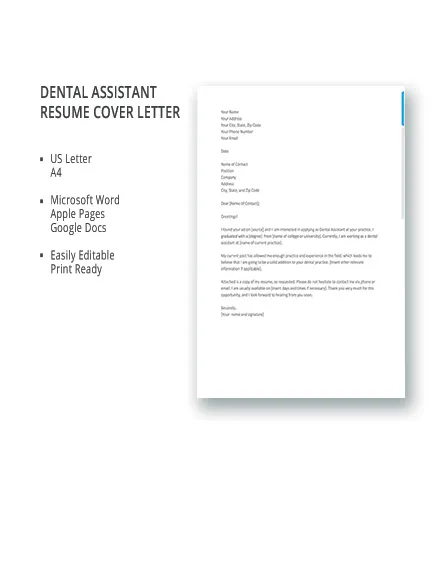
The closing paragraph should re-state your interest in the position and thank the hiring manager for their time and consideration. Express your enthusiasm for the opportunity and your eagerness to discuss your qualifications further in an interview. End with a professional closing, such as “Sincerely” or “Respectfully,” followed by your name. Make sure you include a call to action, such as an invitation to contact you by email or phone. Proofread your entire cover letter before submitting, to ensure you have not overlooked any small details.
